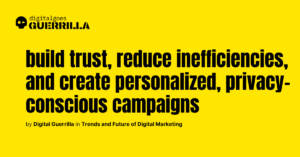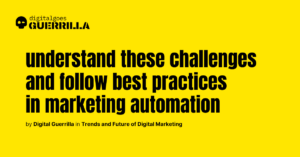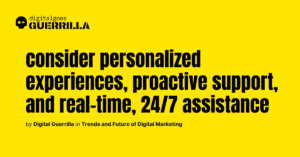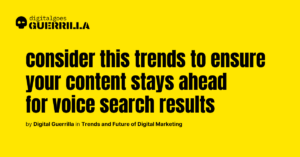Imagine a world where digital marketing is not only hyper-targeted but also transparent, secure, and built on trust. Blockchain technology—often associated with cryptocurrencies—is quietly revolutionizing industries, and digital marketing is no exception. For marketers, the shift isn’t just about adopting a new tool; it’s about fundamentally rethinking strategy.
In this post, we’ll demystify how blockchain technology influences digital marketing strategies. Beyond the buzzwords, you’ll discover actionable insights, innovative applications, and concrete examples that can reshape your marketing efforts.
How Blockchain Impacts Digital Marketing: A Game-Changer
Blockchain’s decentralized ledger technology ensures transparency, security, and control. For digital marketers, this opens up avenues to build consumer trust, eliminate fraud, and improve personalization. Let’s delve into some transformative effects:
1. Building Consumer Trust with Transparent Data Practices
Modern consumers are wary of how their data is collected and used. Blockchain offers a decentralized way to store and share consumer data, giving users more control over their information. This transparency fosters trust, a critical element in customer loyalty.
For instance, companies can leverage blockchain to create digital advertising ledgers where customers see how their data is used, ensuring compliance with GDPR and other privacy laws.
Actionable Tip: Implement blockchain-powered consent management tools to offer users a clear view of how their data is being shared. Tools like Brave Browser reward users with cryptocurrency for their data and ad interactions, setting a new standard for transparency.
2. Fighting Ad Fraud and Ensuring Ad Spend Efficiency
Ad fraud costs businesses billions annually. Blockchain can verify ad impressions and clicks by creating immutable records of transactions. With this, marketers can ensure their budgets are not wasted on fraudulent activities.
For example, MetaX’s adChain uses blockchain to validate legitimate ad impressions. This means advertisers only pay for verified, human engagements.
Data Point: According to a recent study, blockchain solutions in digital advertising can reduce ad fraud by up to 79%.
Actionable Tip: Explore blockchain-based advertising platforms like Lucidity, which provides transparency in programmatic ad campaigns by tracking the supply chain from impression to conversion.
3. Revolutionizing Loyalty Programs with Smart Contracts
Loyalty programs often suffer from low engagement and inefficiencies. Blockchain simplifies this by using smart contracts—self-executing agreements that automate rewards issuance. Customers can earn, track, and redeem points seamlessly across platforms.
For example, airlines using blockchain allow travelers to exchange loyalty points for crypto tokens, increasing flexibility and engagement.
Actionable Tip: Partner with a blockchain service provider to integrate smart contracts into your loyalty programs, ensuring instant rewards and higher customer satisfaction.
4. Creating Decentralized Content Platforms
Centralized content platforms like Facebook and Google dominate digital marketing. Blockchain-based alternatives like Steemit and LBRY empower creators by offering fair compensation through cryptocurrencies while removing intermediaries.
Marketers can tap into these platforms to reach audiences more authentically and cost-effectively.
Actionable Tip: Diversify your content strategy by exploring decentralized platforms. Engage audiences with unique, value-driven content while supporting fair creator compensation.
5. Enhancing Personalization Without Compromising Privacy
Blockchain enables secure, consent-driven personalization. Unlike traditional methods that often invade privacy, blockchain allows consumers to share specific data with brands in exchange for personalized offers.
Case Study: A retail brand used blockchain to allow users to opt into product recommendation engines by sharing shopping preferences securely. As a result, the brand increased conversions by 30%.
Actionable Tip: Use blockchain to create opt-in data-sharing programs, giving customers control while delivering tailored experiences.
Enhance customer satisfaction and loyalty through personalized marketing strategies and exceptional customer experiences. Learn more about Personalization and Customer Experience
Key Blockchain Tools for Digital Marketers
- Brave Browser: Privacy-focused browsing with ad-blocking and crypto rewards.
- Lucidity: Tracks programmatic advertising data to reduce fraud.
- MetaX adChain: Verifies ad impressions for enhanced ROI.
- Steemit: A blockchain-based social network rewarding content creators.
FAQs: Blockchain and Digital Marketing
Q1: How does blockchain improve ad targeting?
By providing verified, consent-based consumer data, blockchain ensures precise targeting without breaching privacy laws.
Q2: Is blockchain adoption expensive for marketers?
Initial integration can be costly, but long-term savings from reduced fraud and increased efficiency often outweigh the investment.
Q3: Are there risks in using blockchain for marketing?
As a relatively new technology, scalability and regulatory uncertainties pose challenges. Work with experts to mitigate these risks.
Conclusion: Future-Proof Your Digital Marketing with Blockchain
Blockchain technology isn’t just a passing trend—it’s a transformative force in digital marketing. By embracing its potential, marketers can foster trust, reduce inefficiencies, and create personalized, privacy-conscious campaigns.
As blockchain evolves, staying ahead of the curve is crucial. Begin experimenting with blockchain tools and platforms today to ensure your strategy remains competitive tomorrow.
Read more about Trends and Future of Digital Marketing:
- How does blockchain technology influence digital marketing strategies?

- How Voice Search Influences Digital Marketing?

- challenges and opportunities in marketing automation

- How can virtual and augmented reality be used in marketing?

- What role do chatbots play in improving customer engagement?

- What are some current trends in voice search optimization?
